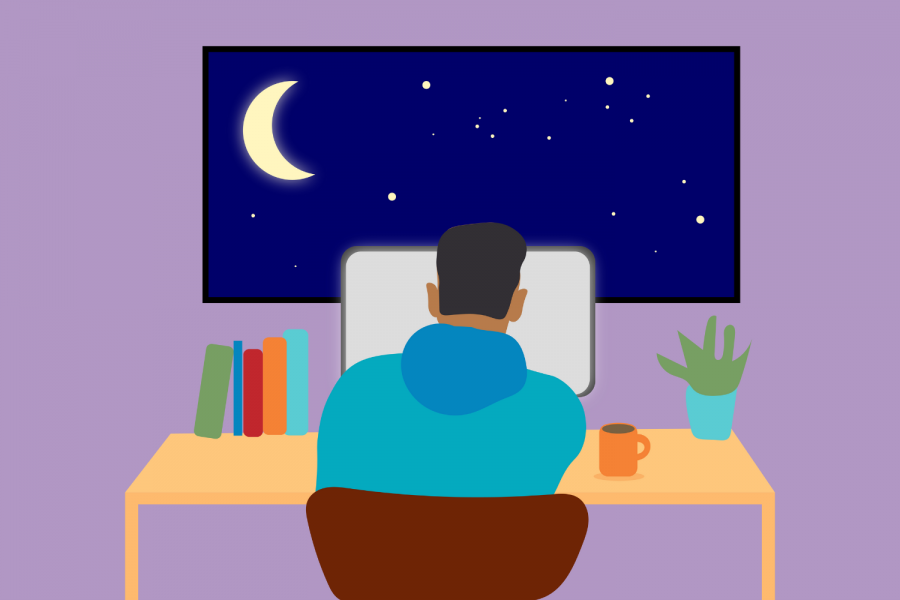It’s not uncommon for college students to sacrifice their sleep to study, especially at Vanderbilt. In fact, Stevenson Library is open 24/7 during finals week. One study found that only 60% of college students get seven hours of sleep per night despite the recommended seven to nine hours — but sleep is not the place to cut corners. I’ve compiled a list of a few quick tips that you can use to optimize your sleep.
- No more (long) naps
Skipping sleep is an alluring strategy that college students often use to compensate for lost time. Whether you have an exam in the morning or an assignment due that night, cramming may have its appeal, but this is not the most effective way to learn. Sleep is the time for our body to process information we learned during the day and consolidate it into our long-term memory.
“Time spent sleeping, after learning new material, has been shown to be more effective than time spent cramming that material. We strongly advise students to get their Zzzs during finals week to have the most successful grades. They will remember what they learn for a longer time,” Beth Malow, a VUMC neurology and sleep medicine professor, said in an email to The Hustler.
Well, how do busy college students make time to get more sleep? One common solution is through naps.
There is research to support that naps can supplement lost sleep and even help memory consolidation. However, not all naps are good for you. While we sleep, our bodies cycle between four stages; stage three is deep sleep. Waking up in stage three sleep can be difficult and leave us feeling even more tired than before we laid down. To avoid this grogginess, you should keep your naps to around 15 to 25 minutes long.
- Implement a bedtime routine
As a child, we all knew when it was time to stop watching TV and go to bed. But, as we’ve grown into young adults, many college students have lost the art of having a bedtime routine. A set nighttime routine helps prime your body and mind for a good night’s rest. Your brain begins winding down for sleep a few hours before your natural sleep-wake cycle. Schedule a time, around 30 minutes to an hour, where you follow specific steps to repeat each night. Whether that be a skincare regimen or reading a book, having a task that you do before bed each night helps your brain learn when it is time to shut off.
- Preserve your sleep environment
To get the best quality sleep, it is important to make a clear distinction between your place of work and your place of rest. Your bed should be a sanctuary, never a place to do math problems or class readings. If you start using your bed for late-night cramming, your brain may begin to associate it with high levels of stress and activity. Instead, try finding a motivating study spot to do your work in. I recommend the third floor of Buttrick Hall or Local Java at Alumni Hall. This will make your bed a more sleep-friendly environment.
- Quiet your thoughts
Anyone who has ever suffered from racing thoughts knows this familiar feeling: you’re lying in bed, trying to fall asleep, but all you can think about is anything but sleep. The “brain dump” method can be used to clear and relax your mind before you go to bed. First, take a few deep breaths, focusing on the exhale. Then, take as long as you need to write down all the thoughts racing through your mind. From your exam next week to what you will eat for lunch tomorrow, dump all your concerns onto a piece of paper.
Meditation can also be a useful way to quiet your mind before bed. Take a few minutes to let go of your thoughts and focus on the present before you shut your eyes for the night. If you need help facilitating your meditation, Vanderbilt students have free access to the Headspace meditation and sleep app. These tools can help with the anxious thoughts that keep us from falling asleep.
- Create healthy habits
It’s not just what you do before bedtime that affects how you sleep at night; it’s everything you do during the day, too. Try to get sunlight throughout the day, as this helps regulate your circadian rhythm and improve your sleep quality. Regular exercise can also make it much easier to fall asleep, as well as being mindful of your caffeine intake. Caffeine can keep you awake all night, so aim to avoid drinking a Celsius or a Suzie’s latte four hours before bedtime. Additionally, eating a heavy dinner at night means your food is still digesting as you lie in bed, so avoid food and snacks before bedtime.
As midterm season approaches, prioritize yourself by using these simple tips to get the best sleep of your life.





Sarahn DeL • Mar 11, 2025 at 4:25 am CDT
WOW! Great short piece on sleep! Great job Skye! I’m going to start implementing some of these tips for my sleep habits.
Nila • Mar 3, 2025 at 5:11 pm CST
Very Great Article!
Rhonda Schultz • Mar 3, 2025 at 4:12 pm CST
Very well written and helpful article, Skyelor!
B DeL • Feb 27, 2025 at 4:37 pm CST
Very helpful article on getting restful sleep. I’ve struggled lately and can’t wait to try a few of these tips